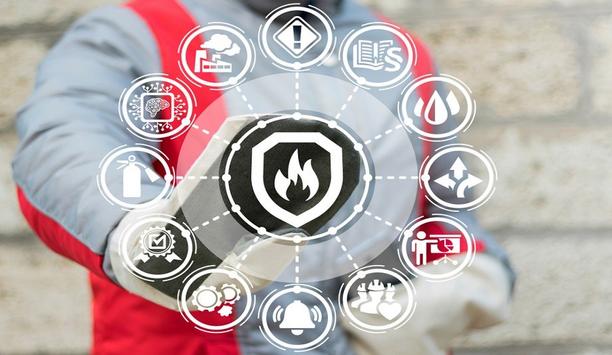As the Grenfell Inquiry slowly heads to an end and the Government begins the task of assessing the recommendations in the Inquiry reports, there will be mounting pressure on Fire and Rescue Services to carry out more inspections and to prosecute more often.
There are likely to be more cases in the Magistrates’ and Crown Courts. With that in mind, here are some points to ponder when defending in Fire Prosecutions.
Entry to Premises
Fire Inspectors have wide powers “to do anything necessary for carrying out this Order” [Article 27(1)]. This power allows an Inspector to enter premises without the use of force and any reasonable time.
If the occupier prevents entry, the Inspector may need to consider seeking the assistance of the police – although if they do so, the Courts will be careful to assess whether the Police were justified in using their broader power of making a forced entry.
Questioning inside the premises
If an entry and questioning is found to be unlawful, then evidence obtained can be ruled inadmissible
Once inside premises, Inspectors have very wide powers to ask questions and seek the production of documents. Given the intrusion into a person’s or corporations’ rights caused by any search, the courts are always alive to whether entry to premises has been embarked on proper, fair, and proportionate grounds.
If an entry and questioning are found to be unlawful, then evidence obtained as a result can in some circumstances be ruled inadmissible at trial and the prosecution prevented from relying on such evidence.
Enforcement Notices/closure notices
Enforcement, Prohibition, and Alteration Notices served about premises [Article 29 – 31] are a source of much litigation. It is always worth engaging with the officer who issued the Notice to ensure you have understood it correctly, that you agree on exactly what needs to be done and whether there is an alternative way of achieving the same ends.
Often the Notice requires expensive work which may not be necessary, or may not be within the power of the responsible person to deliver. If in doubt, appeal the Notice within 21 days after service, so that some “breathing space” can be achieved to consider the Notice, enter discussions with the Fire Service, and possibly instruct an expert to ensure the action required is necessary and can be achieved. It is a common error for the responsible person to discover too late that there was an error in the Notice, or that they should have appealed the Notice, by which time it is too late.
"Responsible Person" – Articles 2, 3, and 5 create a “hierarchy” of who the “responsible person” is for any premises
Responsible person
"Responsible Person" – Articles 2, 3, and 5 create a “hierarchy” of who the “responsible person” is for any premises. There is often more than one responsible person.
It is not uncommon, particularly in multiple-occupation premises with a combination of owners, landlords, tenants, and sub-tenants, as well as business and residential premises (many of which have managing agents and use outside agents to carry out some of their fire duties), for the fire services to pursue the “wrong” person.
Companies and Directors
Companies are capable of being prosecuted under the Order and the criminal law, in their own right as a legal entity. For this to happen the prosecution must prove that the company is criminally liable by identifying and establishing that a directing mind and will (“DMW”) of the company is guilty of the offense, due to their conduct and state of mind. This involves legally imputing to the company itself, the acts and state of mind of the DMW.
Therefore a Director or Officer of a company will often be identified as being a DMW to bring the prosecution against the company and seek to prove the company is guilty of the offense charged. However, it is also increasingly common for prosecutors to charge such individual DMWs in their own right as a defendant facing the same allegation as the company.
Decision to prosecute
Under the Order, were an offense committed by a body corporate is proved to have been committed with the consent or connivance of, or to be attributable to any neglect on the part of, any director, manager, secretary, or another similar officer of the body corporate, or any person purporting to act in any such capacity, s/he, as well as the body corporate, may be convicted under Article 32(8) of the Order.
It is imperative to seek legal advice to consider what representations can and should be made to the prosecution
The decision to prosecute a DMW individual may be tactically pursued to put pressure on the company to plead guilty in return for the decision being made not to prosecute the DMW as well. At the pre-charge stage of any investigation, it is therefore imperative to seek legal advice to consider what representations can and should be made to the prosecution authority before the decision of who to prosecute is made and criminal proceedings commence.
Overlap Between Alleged Breaches
This is a common problem to watch out for. Many of the Articles have a huge overlap. Most Fire Services tend to over prosecute with a maximum number of Summons. Start by suggesting to the Prosecution that an Article 8 breach (duty to take general fire precautions) covers most other Articles and that a plea to this will suffice.
In appropriate cases, explain the position to your Judge in the hope that pressure will be brought to bear on the Prosecution. To ensure trials are manageable and that prosecutors act fairly judges can be sympathetic to defense challenges to the prosecution's choice of charges.
The problem of “overloaded indictments” can found the basis for a judge to rule in the interests of justice that the prosecution should not be permitted to proceed with some counts. One problem with an overloaded indictment is that it becomes more difficult to prove that each Article breach leads to a risk of death or serious injury.
Expert Evidence
The defense may seek to challenge before the court whether the witness being relied upon
Careful consideration must be given in all cases as to whether a witness called by the prosecution to provide expert opinion evidence, is competent to give such evidence. The prosecution must satisfy itself as to the expertise of the expert and engage an expert of suitable caliber (Pabon [2018 ] EWCA Crim 480).
The expert’s competence or skill may stem from formal training, study, and or experience. The defense may seek to challenge before the court whether the witness being relied upon, particularly in fire cases is properly qualified in the subject calling for expertise.
Scrutinizing opinion before pre-trial
Expert witnesses’ legal obligations must always be scrutinized by the defense team pre-trial. For example, Crim PR 19.4 sets out what an expert’s report must contain. This includes such information as the court may need to decide whether the expert’s opinion is sufficiently reliable, that the expert understands the duty to the court and has complied with and will continue to comply with it.
If an expert report does not sufficiently comply with the rules, its admissibility can be challenged successfully. A defense expert can be very useful in defense and mitigating sentences. The earlier an expert is instructed, the more use can be made of their expertise.
Sentencing Exercise
The Sentencing Council specifically left out fire offenses from the Health and Safety Guidelines on the basis that these offenses might “skew” other sentences.
However, the Court of Appeal has said that the Health and Safety Sentencing Guidelines are a good starting point but that the Court should then go higher to reflect that fire offenses result in a risk of death or serious injury.
Written by Sailesh Mehta and Michael Goodwin QC, Red Lion Chambers



















